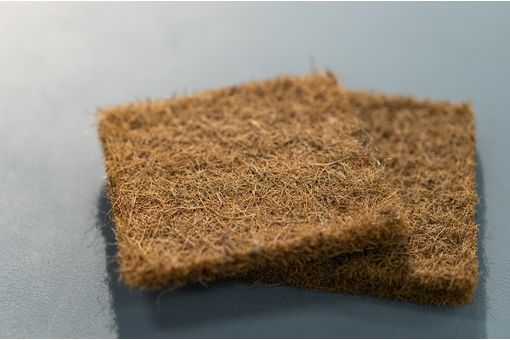Interviews
Rise in cotton prices linked to skewed polices – TT group
19 Apr '10
4 min read
Dr Rikhab Chand Jain, CMD, TT Group of Industries, and Immediate Past Chairman, NITRA, has raised very important issues, which are in turn are connected to containing cotton prices and consequently yarn prices at desired level.
He says that, “Seed cotton consists of 33 percent fiber and approximately 67 percent cotton seed. Out of the cotton seed, about 12 percent oil is extracted and from the rest animal meal is obtained with 6 to 7 percent oil content.
“For the last two years Govt. of India has withdrawn import duty on edible oil and duty free Palm oil @ Rs. 25/- per Kg. is being imported, leading to palm oil imports increasing by more than four times.
“While cost of all edible items like wheat, rice, pulses and sugar have increased, prices of all edible oils have come down due to import pressure. Import of duty free edible oil has caused irreparable loss to edible oil industry in India particularly in Haryana, Punjab, Maharashtra, Andhra Pradesh, Gujarat and Rajasthan. Domestic factories have mostly closed and have suffered losses due to price disparity.
“Cotton Ginning factories are not able to sell cotton seeds. There is just no demand now. Prices of all cotton seeds have come down during last three months by more than 20 %. Even at reduced rates there is no demand of cotton seed oil and oil cake.
“This loss in realizing sale proceeds of ginning factories bye product cotton seed is being pushed on to costing of cotton bales. For instance seed cotton (kapas) price continues to be same as these were three months back.
“But for this additional burden due to fall in prices of cotton seed oil and cotton seed oil cake is the real source of the cotton price tragedy. This is hardly being reviewed properly by those in cotton ginning, cotton trading and garment & textile Industries.
“Interestingly while export of sesame seed (Tal), Groundnut seed and groundnut and all oil meals are allowed to export and also receive 5 percent DEPB benefit. At the same time cotton seed, cotton seed oil, and cotton seed with 6 percent oil is not being allowed to be exported at all, which has caused glut of these items in India.
This means cotton fiber is being indirectly burdened by high prices to keep edible oil prices low. Therefore if cotton seed and cotton seed oil cakes are allowed to be exported with 5 percent DEPB benefit as sesame seeds, it would take care of glut of cotton seeds and cotton seed oil cake in India.
“This would improve prices realization of the cotton seeds sold by ginning factories, consequently cotton prices can come down by Rs. 4,000 per candy (one candy = 355 Kg), and if cotton prices are to be reduced further, Govt. should impose import duty of 20 percent on edible oil imports.
“This would mean import duty of Rs 5 per kg, which would be neutralized by stronger rupee itself and will therefore, not impact on retail price of edible oil. But it would certainly further allow cotton price reduction by Rs 2,000 per candy additionally and may also help oil seed crushing industry to improve its capacity utilization”.
He says that, “Seed cotton consists of 33 percent fiber and approximately 67 percent cotton seed. Out of the cotton seed, about 12 percent oil is extracted and from the rest animal meal is obtained with 6 to 7 percent oil content.
“For the last two years Govt. of India has withdrawn import duty on edible oil and duty free Palm oil @ Rs. 25/- per Kg. is being imported, leading to palm oil imports increasing by more than four times.
“While cost of all edible items like wheat, rice, pulses and sugar have increased, prices of all edible oils have come down due to import pressure. Import of duty free edible oil has caused irreparable loss to edible oil industry in India particularly in Haryana, Punjab, Maharashtra, Andhra Pradesh, Gujarat and Rajasthan. Domestic factories have mostly closed and have suffered losses due to price disparity.
“Cotton Ginning factories are not able to sell cotton seeds. There is just no demand now. Prices of all cotton seeds have come down during last three months by more than 20 %. Even at reduced rates there is no demand of cotton seed oil and oil cake.
“This loss in realizing sale proceeds of ginning factories bye product cotton seed is being pushed on to costing of cotton bales. For instance seed cotton (kapas) price continues to be same as these were three months back.
“But for this additional burden due to fall in prices of cotton seed oil and cotton seed oil cake is the real source of the cotton price tragedy. This is hardly being reviewed properly by those in cotton ginning, cotton trading and garment & textile Industries.
“Interestingly while export of sesame seed (Tal), Groundnut seed and groundnut and all oil meals are allowed to export and also receive 5 percent DEPB benefit. At the same time cotton seed, cotton seed oil, and cotton seed with 6 percent oil is not being allowed to be exported at all, which has caused glut of these items in India.
This means cotton fiber is being indirectly burdened by high prices to keep edible oil prices low. Therefore if cotton seed and cotton seed oil cakes are allowed to be exported with 5 percent DEPB benefit as sesame seeds, it would take care of glut of cotton seeds and cotton seed oil cake in India.
“This would improve prices realization of the cotton seeds sold by ginning factories, consequently cotton prices can come down by Rs. 4,000 per candy (one candy = 355 Kg), and if cotton prices are to be reduced further, Govt. should impose import duty of 20 percent on edible oil imports.
“This would mean import duty of Rs 5 per kg, which would be neutralized by stronger rupee itself and will therefore, not impact on retail price of edible oil. But it would certainly further allow cotton price reduction by Rs 2,000 per candy additionally and may also help oil seed crushing industry to improve its capacity utilization”.
Popular News
Leave your Comments
Editor’s Pick
Jason Kent
British Textile Machinery Association (BTMA)
































-Ltd..jpg?tr=w-120,h-60,c-at_max,cm-pad_resize,bg-ffffff)





.jpg?tr=w-120,h-60,c-at_max,cm-pad_resize,bg-ffffff)
.jpg?tr=w-120,h-60,c-at_max,cm-pad_resize,bg-ffffff)






